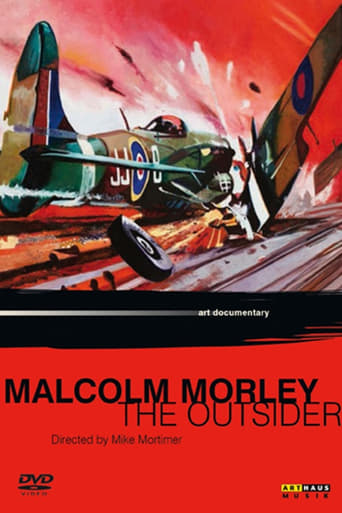Malcolm Morley: The Outsider
“It’s not a natural desire to be a modern artist”. Malcolm Morley In 1984, Malcolm Morley was the first winner of the Tate Gallery’s prestigious award, the Turner Prize, for the year’s major contribution to British art. It came as something of a surprise because he has always been, by his own volition, an outsider who remains aloof from the art world. Since 1957, he has lived a reclusive life in America and harbours ambivalent feelings about his native Britain. Characteristically, he was not there to collect his £10,000 prize. It is impossible to label him as a painter, as he has always avoided association with the schools and styles of contemporary art, though he seems to have pioneered many of them. Art critic Robert Hughes calls him, “the man whose methods have been relentlessly plundered by a generation of artists.” This programme looks at Morley and his work. He talks at length about his art and is seen at work in his New York studio. “It’s not a natural desire to be a modern artist”. Malcolm Morley In 1984, Malcolm Morley was the first winner of the Tate Gallery’s prestigious award, the Turner Prize, for the year’s major contribution to British art. It came as something of a surprise because he has always been, by his own volition, an outsider who remains aloof from the art world. Since 1957, he has lived a reclusive life in America and harbours ambivalent feelings about his native Britain. Characteristically, he was not there to collect his £10,000 prize. It is impossible to label him as a painter, as he has always avoided association with the schools and styles of contemporary art, though he seems to have pioneered many of them. Art critic Robert Hughes calls him, “the man whose methods have been relentlessly plundered by a generation of artists.” This programme looks at Morley and his work. He talks at length about his art and is seen at work in his New York studio. “It’s not a natural desire to be a modern artist”. Malcolm Morley In 1984, Malcolm Morley was the first winner of the Tate Gallery’s prestigious award, the Turner Prize, for the year’s major contribution to British art. It came as something of a surprise because he has always been, by his own volition, an outsider who remains aloof from the art world. Since 1957, he has lived a reclusive life in America and harbours ambivalent feelings about his native Britain. Characteristically, he was not there to collect his £10,000 prize. It is impossible to label him as a painter, as he has always avoided association with the schools and styles of contemporary art, though he seems to have pioneered many of them. Art critic Robert Hughes calls him, “the man whose methods have been relentlessly plundered by a generation of artists.” This programme looks at Morley and his work. He talks at length about his art and is seen at work in his New York studio. “It’s not a natural desire to be a modern artist”. Malcolm Morley In 1984, Malcolm Morley was the first winner of the Tate Gallery’s prestigious award, the Turner Prize, for the year’s major contribution to British art. It came as something of a surprise because he has always been, by his own volition, an outsider who remains aloof from the art world. Since 1957, he has lived a reclusive life in America and harbours ambivalent feelings about his native Britain. Characteristically, he was not there to collect his £10,000 prize. It is impossible to label him as a painter, as he has always avoided association with the schools and styles of contemporary art, though he seems to have pioneered many of them. Art critic Robert Hughes calls him, “the man whose methods have been relentlessly plundered by a generation of artists.” This programme looks at Morley and his work. He talks at length about his art and is seen at work in his New York studio.



 AD
AD